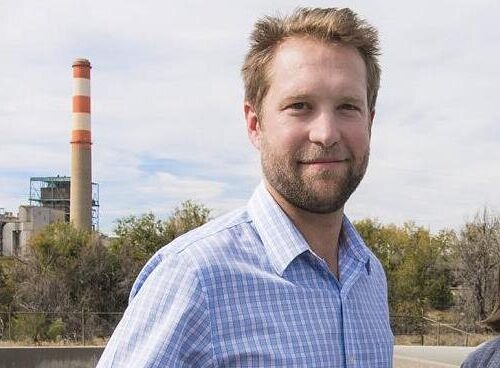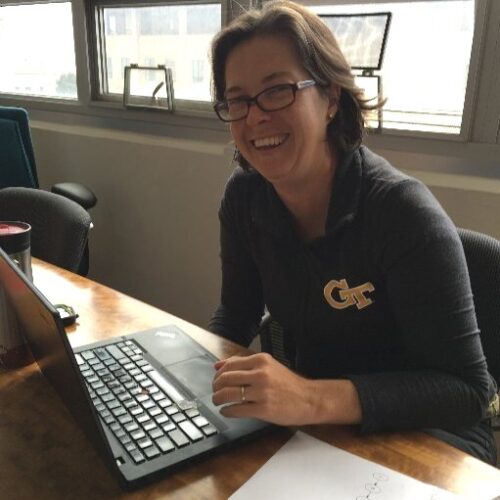
Jordan Macknick
Topic Area Leader
Dr. Jennifer Stokes-Draut
Deputy Topic Area LeadThe Challenge
Research progress in energy-efficient water desalination of nontraditional water sources has been hindered by the absence of accessible water treatment data, a lack of standardized methods for assessing technology performance or the benefits of technology innovation, and minimal systems-level analytical research and tools. The data modeling and analysis (DMA) topic area is a central, strategic, and non-biased service to NAWI that uses analysis and innovative tools to align research across all NAWI research areas.
Our Approach
The DMA topic area focuses on enabling advanced water technology research by: providing a secure and publicly accessible data management system; developing a standardized open-source analytical platform for consistently evaluating pipe parity of technologies treating non-traditional water sources; and providing innovative systems-level analyses and tool development.
The DMA research is advancing science and understanding of water systems research through evaluation of topics such as:
-
How innovative water treatment technologies, treatment trains, and system designs could improve pipe parity performance of non-traditional water sources.
-
The impacts of water treatment technologies and systems-level improvements on a broader suite of economic, societal, and environmental metrics.
-
Foundational data and tool development that enables analytical research on water treatment systems.
Projects
Project 3.02 Development, Deployment, and Refinement of the Water Technology Data and Analysis Management Platform (Water-DAMS) Lead: Jon Weers, National Renewable Energy Laboratory
The Water Technology Data and Analysis Management System (Water-DAMS) provides the water treatment research community a secure central repository for technology and treatment train data that is accessible to researchers, decision-makers (e.g., water managers), DOE, and the public while also providing sufficient data security to protect water utilities.
Partners: Lawrence Berkeley National Laboratory
Project 3.03Develop the Water Technology Techno-Economic Assessment Pipe Parity Platform Lead: Ariel Miara, National Renewable Energy Laboratory
The Water Technoeconomic Assessment Pipe-Parity Platform (WaterTAP3) was developed under the National Alliance for Water Innovation (NAWI) to facilitate consistent technoeconomic assessments of desalination treatment trains. The WaterTAP3 is an analytically robust modeling tool that can be used to evaluate water technology cost, energy, and environmental tradeoffs across different water sources, sectors, and scales.
Partners: OSU, Stanford, EPRI, Lawrence Berkeley National Laboratory, National Renewable Energy Laboratory.
Project 3.04Roadmap to R&D Cycle: Technology Baselines, NAWI Performance Tracking, and Technology Roadmapping Lead: Parthiv Kurup, National Renewable Energy Laboratory
Partners: EPRI, NMSU, Colorado State, CU Boulder, UCinci, USC, WUSTL, TAMU, UTA, CSM, UCB, UCI, Yale, BlueTech Research, LBNL, NREL, ORNL.
Project 3.05Integrated Data and Analysis Research Projects Lead: Jordan Macknick, National Renewable Energy Laboratory
Partners: Stanford University, NREL
Project 3.06NAWI Water Treatment Model Development Lead: Timothy Bartholomew, National Energy Technology Laboratory
Partners: EPRI, OLI, LBNL, NETL, NREL, ORNL.
Project 3.07NAWI Analysis Lead: Alex Dudchenko, Stanford Linear Accelerator C
Partners: Lawrence Berkeley National Laboratory, National Renewable Energy Laboratory
Project 3.08Next-Generation Desalination for for Treatment of Agricultural Drainage Wastewater Lead: David Sedlak, University of California at Berkeley
This project will complete the first ever study of how distributed desalination and water reuse could secure new water supplies for California’s Central Valley while potentially creating new economic opportunity through the manufacturing of valuable products from brine waste streams from desalination.
Partners: Lawrence Berkeley National Laboratory, University of California, Davis, Meridian Institute
Project 3.09Assessing the Impact of APRIME on Industrial Sector Supply Portfolios: Chemical Industry and Data Center/Large Campus Case Studies Lead: TBC, The University of Texas at Austin
This project will develop a circular water systems analysis (CWSA) software tool to enable industrial water users to better quantify the total value of implementing novel water treatment, desalination, and reuse systems at their facilities.
Partners: Carollo Engineers, Georgia Institute of Technology, Electric Power Research Institute (EPRI), BlueTech Research, Lawrence Berkeley National Laboratory, and Eastman Chemical Company (North Ghent and Indian Orchard Sites.)
Project 3.10Robust Technology and Policy Pathways for Municipal Water Security Lead: Meagan Mauter, Stanford University
This project will develop a new decision support software tool to enable urban water planners and operators to identify cost- and energy-optimal non-traditional source water augmentation pathways, including desalination, that enhance municipal resilience against current and future water shortages.
Project 3.11Demonstration and Validation of Low Salt Rejection RO (LSSRO) for High Recovery Desalination of Saline Water Lead: Tzahi Cath, CSM
Partners: Fluid Tech Solutions Inc.
Project 3.18Salt-Free Electrodialysis Metathesis (EDM) For High Recovery Concentrate Management Lead: Shane Walker, Texas Tech University
Partners: University of Texas at El Paso, New Mexico State University
Project 3.23 Evaluating the Value of Grid-Responsive Flexible DesalinationLead: Brian Tarroja, University of California, Irvine
Partners: Hazen and Sawyer, Chino Desalter Authority
Project 3.24 Open-Source Platform for Assessing the Cost and Carbon Benefits of Flexible DesalinationLead: Meagan Mauter, Stanford University
Partners: SLAC National Accelerator Laboratory, National Energy Technology Laboratory, City of Santa Barbara
Project 3.26 Technoeconomic Assessment of Brine Valorization from Brackish Water DesalinationLead: Alison Fritz, National Energy Technology Laboratory
Partners: Yale University, SLAC National Accelerator Laboratory, Stanford University
Project 4.02ProteusLib – Integrated Computational Capability for Optimizing Advanced Water Treatment Systems Lead: David Miller, National Energy Technology Laboratory
This project is developing ProteusLib, a modeling and simulation capability for the design and optimization of water treatment systems. ProteusLib is a modular water
treatment model library that can be used on the IDAES Platform, an advanced process systems engineering tool developed by the U.S. Department of Energy.
Partners: Lawrence Berkeley National Laboratory, National Renewable Energy Laboratory, Oak Ridge National Laboratory
Project 4.03High-Fidelity Modeling Lead: Ramanan Sankaran, Oak Ridge National Laboratory
Partners: Lawrence Berkeley National Laboratory, National Renewable Energy Laboratory, Stanford University
